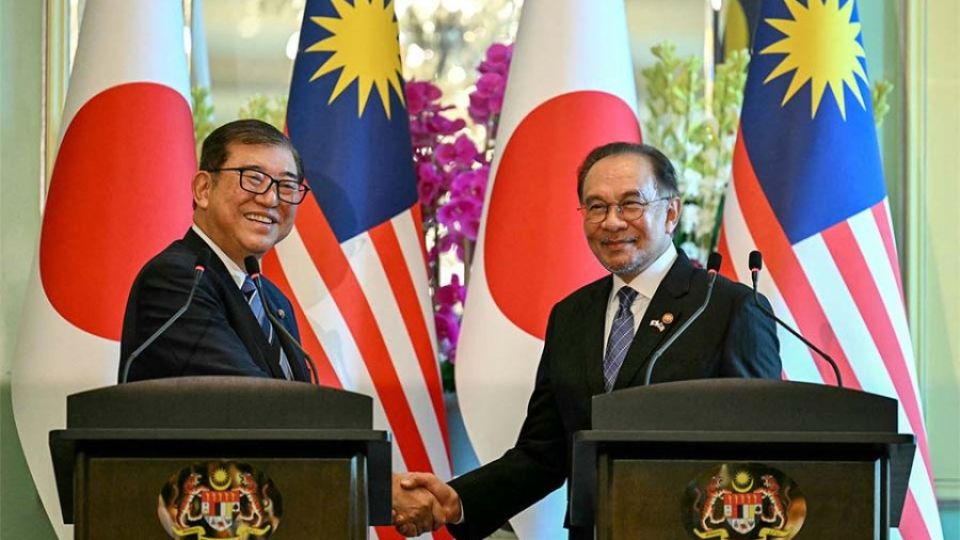January 14, 2025
TOKYO – At a time when the international situation is increasingly fluid, it is significant if Japan has demonstrated its commitment to the stability and prosperity of Asia. It is hoped that Japan will continue to deepen multilayered cooperation.
Prime Minister Shigeru Ishiba has visited Malaysia and Indonesia.
Malaysia is this year’s chair of the Association of Southeast Asian Nations (ASEAN). Indonesia boasts the largest population and economy among ASEAN member states, and hopes are pinned on its future growth.
Ishiba initially planned to visit South Korea at the beginning of this year, but he gave up on the trip due to the political turmoil in that country. The change in the destination of his overseas trip was sudden, but it was appropriate that Asian countries were still chosen.
During his meeting with Indonesian President Prabowo Subianto, Ishiba said Japan will provide support for training Indonesian government officials. The program targets a total of about 7,200 people, and they will be accepted by Japanese companies, local governments and other entities.
Indonesia has shown progress in democratic governance, but bribery and other forms of corruption are said to continue unabated.
It is crucial for Japan to engage in training Indonesian government officials and cooperate in the development of a sound political and economic system. Such initiatives are desirable because they will also help increase the number of people who are knowledgeable about Japan.
Ishiba and Prabowo also affirmed their view to hold a two-plus-two meeting of Japanese and Indonesian foreign and defense ministers within the year, and to advance discussions among their defense authorities toward the joint development of naval vessels.
Indonesia has deepened its relations with China, but the two countries have been at odds over interests in the South China Sea. It is important for Japan and Indonesia to deepen their defense cooperation.
Ishiba also held a meeting with his Malaysian counterpart Anwar Ibrahim, at which they agreed to move forward with the concept of decarbonizing Asia that was proposed by the administration of former Prime Minister Fumio Kishida.
Based on this concept, a project to construct a plant in Malaysia that will produce hydrogen without emitting carbon dioxide has been already launched with the participation of Japanese companies. It is desirable to make use of Japan’s top-notch knowledge and technology to help ASEAN nations combat global warming.
In recent years, China has strengthened its influence in the region by supporting ASEAN countries on the economic front. Many of the ASEAN nations have criticized Beijing’s hegemonic activities, but their real desire is probably to avoid a decisive confrontation.
Even if Japan were to loftily advocate the importance of the rule of law and other universal values, it likely would not be easy to change this stance of the ASEAN countries.
For many years, Japan has supported each of the ASEAN countries through official development assistance, but in recent years, it has come to rely on them as a source of human resources. It is vital for Japan and ASEAN nations to continue to work together on an equal footing and further develop trust between them.

